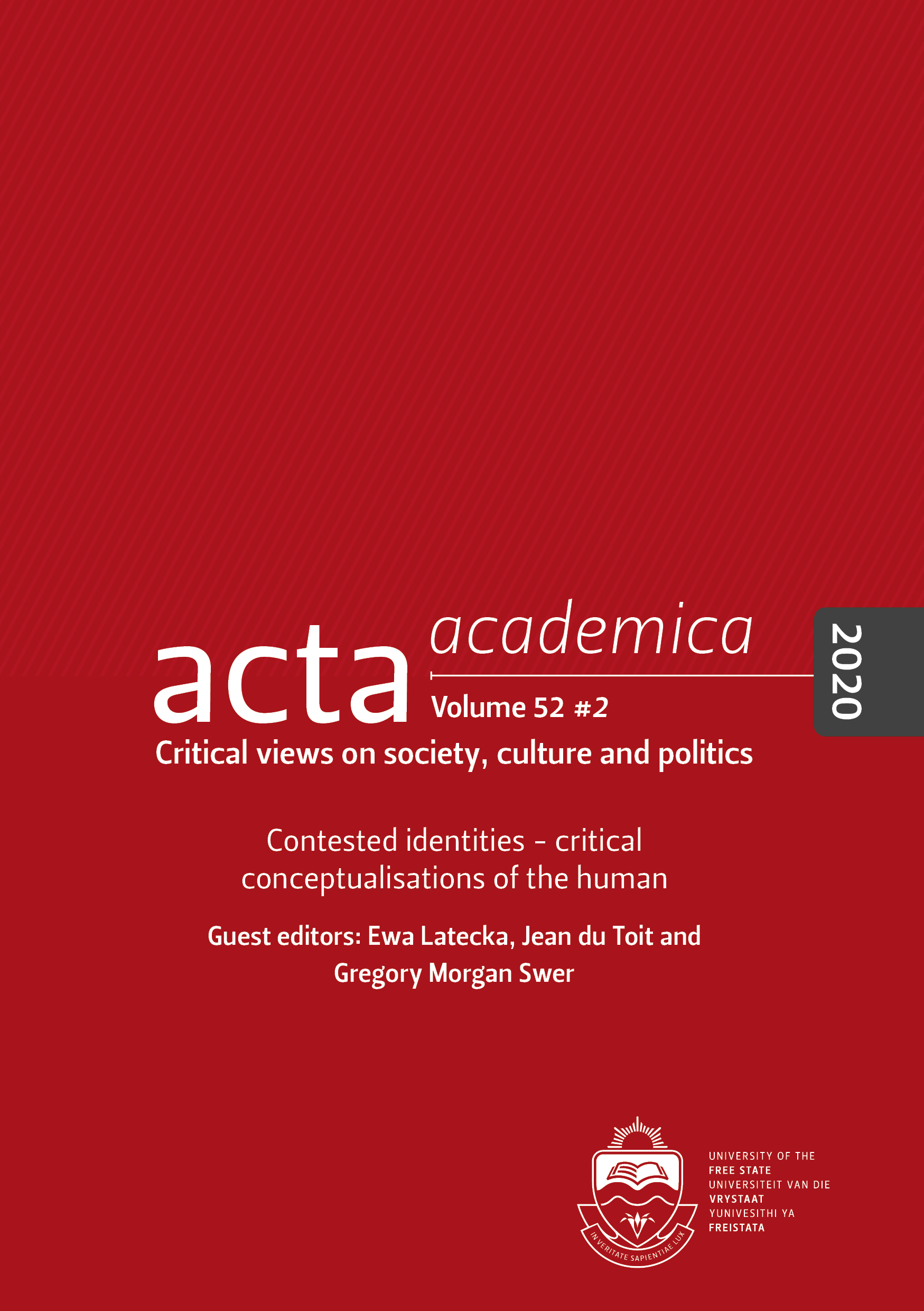Emancipatory politics between identity and disidentification: Rancière and the Black Consciousness Movement
DOI:
https://doi.org/10.18820/24150479/aa52i2/2Keywords:
Jacques Rancière, Identity politics, Stephen (Steve) Bantu Biko, The Black Consciousness Movement, Apartheid South AfricaAbstract
This article addresses the contentious issue of the relation between emancipatory politics and identity- based forms of politics, especially in a colonialist context. More specifically, the stance toward identity politics of radical contemporary philosopher Jacques Rancie?re will be examined in relation to the politics of South Africa’s Black Consciousness Movement (BCM), as expounded in the writings of Steve Biko. The article first tracks Rancie?re’s key articulations of his views on identity politics throughout his work, noting a movement from a rather dismissive treatment to a more nuanced and conditional stance. Second, some of the main challenges and trouble spots in conceptualising and appreciating the key components of the BCM within Rancie?re’s theory of emancipatory politics are considered. While being found to be limited in properly acknowledging the BCM’s empowering, therapeutic functions and nationalist tendencies, Rancie?re’s conceptual framework is shown to be more productive in accounting for the complex ways in which both the assertion and denial of black identity have played a key role in the BCM’s politics.
Downloads
##submission.downloads##
Published
Issue
Section
License
Copyright (c) 2020 Author(s)

This work is licensed under a Creative Commons Attribution 4.0 International License.





